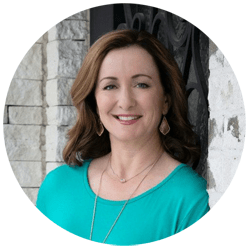
Breast Cancer Awareness - Managing the Risk Through DUTCH Testing
Oct 03, 2023By Jennifer Engels, MD
While October is Breast Cancer Awareness Month, we need to be constantly aware of this insidious disease that afflicts millions of women worldwide. In the United States, it is the most common type of cancer among women, besides skin cancer. It accounts for about 30% of new female cancers each year, and the American Cancer Society projects that over 297,000 new breast cancer cases will be diagnosed in American women in 2023. Sadly, about 43,000 women will die in our country this year from the disease.
Fortunately, as science progresses, our understanding of the many complex factors contributing to breast cancer also advances, and recent research has given the medical community a new tool that some practitioners call a “game changer.”
This relatively new tool is called “DUTCH testing”, and in this article I will attempt to explain the basics of this test and its role in managing the risk of breast cancer.
DUTCH Testing and Estrogen Metabolism
DUTCH is an acronym that stands for Dried Urine Test for Comprehensive Hormones.
As in previous articles, I do not want to confuse or lose you by getting too far into the “scientific weeds,” but the topic is a bit complex, and I ask you to bear with me as I explain the basics of this relatively new approach in managing the risk of breast cancer.
Hormones are influential messengers regulating numerous bodily functions, including cell growth and division. In the area of breast health, hormonal imbalances can increase the risk of breast cancer. The DUTCH test goes beyond traditional hormone testing by analyzing not only the levels of a woman’s major reproductive hormones - estrogen, testosterone, and progesterone - but also their metabolites, the byproducts that provide a deeper understanding of hormonal activity.
Through a simple process of collecting dried urine samples over a 24-hour period, healthcare providers gain valuable insights into how your body metabolizes hormones, and DUTCH testing's ability to analyze hormone metabolites provides a comprehensive picture of how hormones are processed in the body. This insight is invaluable for identifying patterns that might increase breast cancer risk.
For example, certain estrogen metabolites have been associated with a higher risk of breast cancer, while others exhibit protective properties. Healthcare professionals using DUTCH testing can formulate interventions and recommendations for each woman’s unique hormonal profile, the ratio of risk vs. protection.
To say it another way, by examining the ratio of these metabolites, we can identify patterns that might indicate an increased risk of breast cancer. This information is invaluable for tailoring personalized prevention strategies.
Functional Medicine’s Personalized Approach to Breast Cancer Prevention
Functional medicine operates on the fundamental belief that health is not merely the absence of disease but a state of complete physical, mental, and emotional well-being. Rather than treating symptoms in isolation, functional medicine seeks to address the underlying imbalances that give rise to health issues.
This holistic approach is especially pertinent in the realm of breast cancer prevention, where hormonal imbalances and other factors can play a crucial role.
Your personalized breast cancer prevention plan might encompass various aspects, including:
- Lifestyle Modifications: Based on your DUTCH test results, we can identify lifestyle factors that impact your hormonal balance. This might involve recommendations for stress management, sleep optimization, and exercise routines tailored to your hormonal needs.
- Nutritional Guidance: Certain dietary choices can influence hormonal activity. Understanding your metabolite ratios can suggest dietary adjustments that promote hormonal balance and breast health.
- Supplementation: In some cases, targeted supplementation might be beneficial to correct specific imbalances highlighted by the DUTCH test. These supplements are carefully chosen to support your body's natural processes.
- Hormone Optimization: If hormonal imbalances are significant, we might consider hormone replacement therapy to restore equilibrium. This is a personalized decision made in consultation with you based on your health goals and preferences.
It’s essential to emphasize that breast health isn't a one-time consideration - it's an ongoing journey. The DUTCH test isn't just about prevention; it's about empowerment through vigilance. Regular DUTCH testing allows us to track changes in your hormonal profile over time. Any deviations from the norm can be addressed swiftly, minimizing potential risks.
At WeCare Frisco - Empowering Early Detection and Vigilance
Functional medicine empowers you to take charge of your health journey, and the DUTCH test is a powerful tool in this pursuit. By unraveling the complexities of hormonal balance, we can create a personalized prevention plan that speaks to your body's unique needs.
Remember, breast cancer prevention is about understanding the nuances of your health and making informed choices. Through functional medicine and the insights from the DUTCH test, you're equipped to safeguard your breast health proactively and enjoy a life of vitality and well-being.
To learn more about DUTCH testing and its role in breast cancer prevention, call us at WeCare Frisco at 972-668-2636 to schedule a free Discovery Call.



